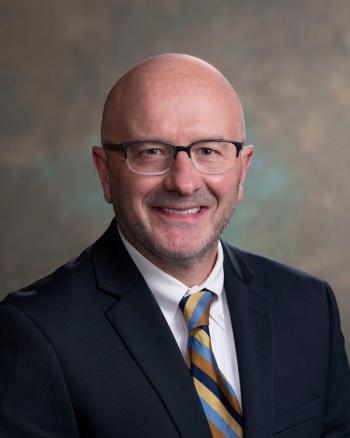
Six biggest mistakes physicians make when planning for retirement
High incomes do not guarantee smart money management.
While physicians are well-versed in matters of physical health, they tend to flounder when it comes to best practices for their financial health. And laying out long-term financial plans for retirement can be tricky. There is no one-size-fits-all solution.
Unfortunately, many physicians falsely believe that retirement planning will be easier for them as high-income earners; however, earning a high income does not guarantee smart money management. Even physicians aren’t immune to making financial missteps.
Here are six common retirement planning mistakes physicians make that could significantly interfere with a timely and successful retirement:
1. Not Starting Right Away: Because medical school and residency prevent many physicians from entering their earning years until their mid-thirties, they have less time to accumulate savings, and their savings have less time in the market to compound. But, for many physicians just out of residency, socking away for retirement tends to take a back seat to purchasing a home, starting a family, or simply not having to live so frugally. In order to counteract getting a late start, physicians will need to increase their savings rate and begin funding their retirement savings as soon as possible.
2. Not Saving Enough: Because physicians are high earners, they usually enjoy a higher standard of living they’d like to maintain in retirement. This reality, coupled with a late start, translate into one very big problem: physicians have less time to accumulate more money. In order to live a comparable lifestyle over an extended retirement period, they will have to find ways to accelerate their savings. While it is commonly recommended that the average person saves 10 percent of their income, physicians will need to save closer to (if not higher than) the 20 percent mark.
3. Accessing Retirement Funds Before Retirement: The purpose of retirement planning is to accumulate adequate resources to fund your post-working life without running out of money, not to fund short-term goals such as buying a house or sending a child to college. But, sometimes tunnel vision conquers will-power and physicians will regrettably borrow from their 401 (k). Not only does borrowing against your retirement account postpone savings goals (which are already more difficult for physicians as discussed above), but brings a potential tax-burden and possible penalty fees to the table.
4. Ignoring Healthcare Costs: This point may surprise you, but even physicians are susceptible to underestimating the escalating cost of healthcare. Healthcare is one of the nation’s largest industries, dominating 17.9% of the nation’s gross domestic product, and the rate of increase has long surpassed the average annual increase in Americans’ income. According to a March 2019 study published in the Journal of the American Medical Association (JAMA), healthcare spending in the U.S. during 2017 was at $3.5 trillion, or about $11,000 per person. By 2027, these costs are expected to reach $6 trillion, or $17,000 per person.
Physicians may also overlook long-term care considerations until they are so close to retirement that insurance rates make obtaining a policy cost-prohibitive.
5. Lacking in Estate Planning Documents: While many physicians deserve kudos for keeping and maintaining important documents around their practices, they aren’t always known for being as vigilant with their personal estate planning documents. Pertinent documents include your financial powers of attorney and medical directives while you are alive and your wishes for your estate after you pass. In the absence of these documents, your family could be exposed to making tough medical decisions on your behalf, a lengthy probate process, and costly attorney fees-all of which could be significantly injurious to their financial well-being.
6. Not Working with a Financial Advisor: One of the most important and most difficult financial decisions we will ever have to face is saving for retirement. And with retirement periods extending alongside rising life expectancies, accumulating adequate resources to outlive your assets is becoming increasingly challenging.
And putting all the pieces together is no easy feat. Most physicians simply do not have the time to DIY a viable retirement plan. They do not have the time to learn the ins and outs of savings options and tax-savings strategies or the time to monitor their portfolios to ensure that they are on track to meet their goals. The result? Physicians will postpone planning or reach their ideal retirement date woefully unprepared.
The remedy is finding a trusted advisor who can point you in the right direction, not only from a financial perspective, but a personal one, as well.
Whether you are just starting out or have been practicing medicine for decades, one thing is invariably true: you likely won’t want to work forever. No matter how much you love practicing medicine, a day might come when you are ready to leave the operating room and spend more time with your loved ones. Unfortunately, because so many physicians struggle with retirement planning, they are forced to work longer than they’d hoped in order to generate the income necessary for a comfortable retirement lifestyle.
About the Author
Julianne F. Andrews , MBA, CFP®, AIF® began her career in financial planning in 1988 and co-founded Atlanta Financial Associates in 1992, merging into Mercer Advisors in 2020. She specializes in working with physicians and executives in the healthcare industry. Her passion for working with physicians comes from being a pediatrician’s spouse for more than three decades. Julie has been featured on Forbes’ list of America’s Top Women Wealth Advisors since 2017 as well as Forbes’ Best-in-State Wealth Advisors since 2018. Julie can be reached at jandrews@merceradvisors.com .
Newsletter
Optimize your practice with the Physicians Practice newsletter, offering management pearls, leadership tips, and business strategies tailored for practice administrators and physicians of any specialty.






